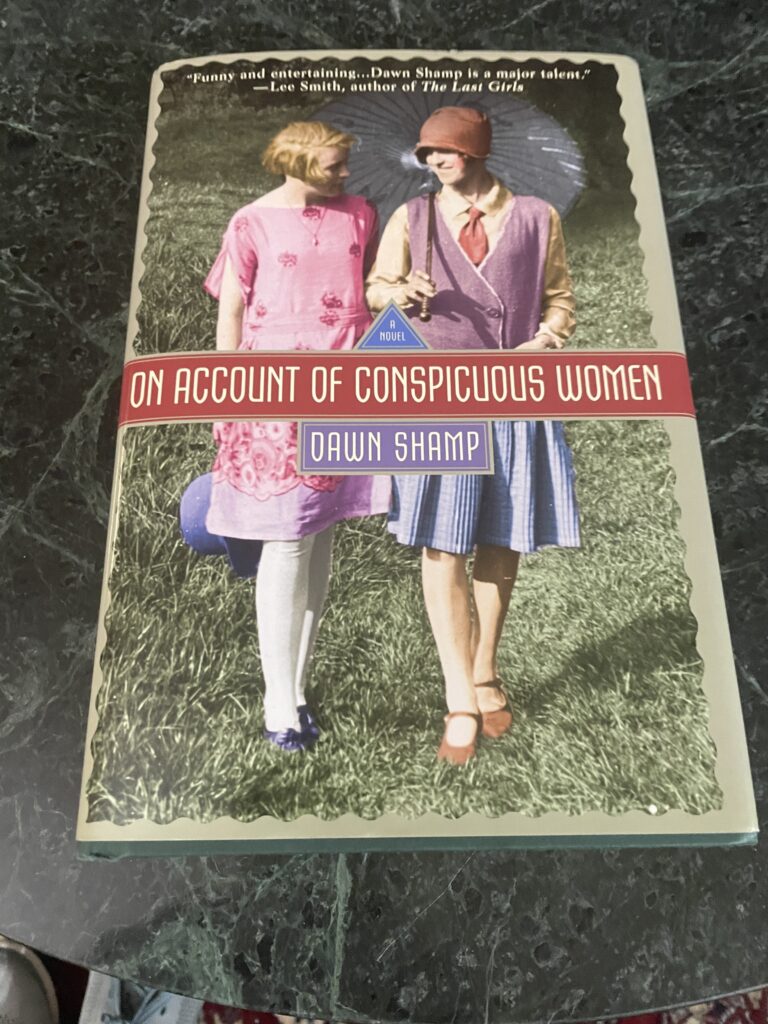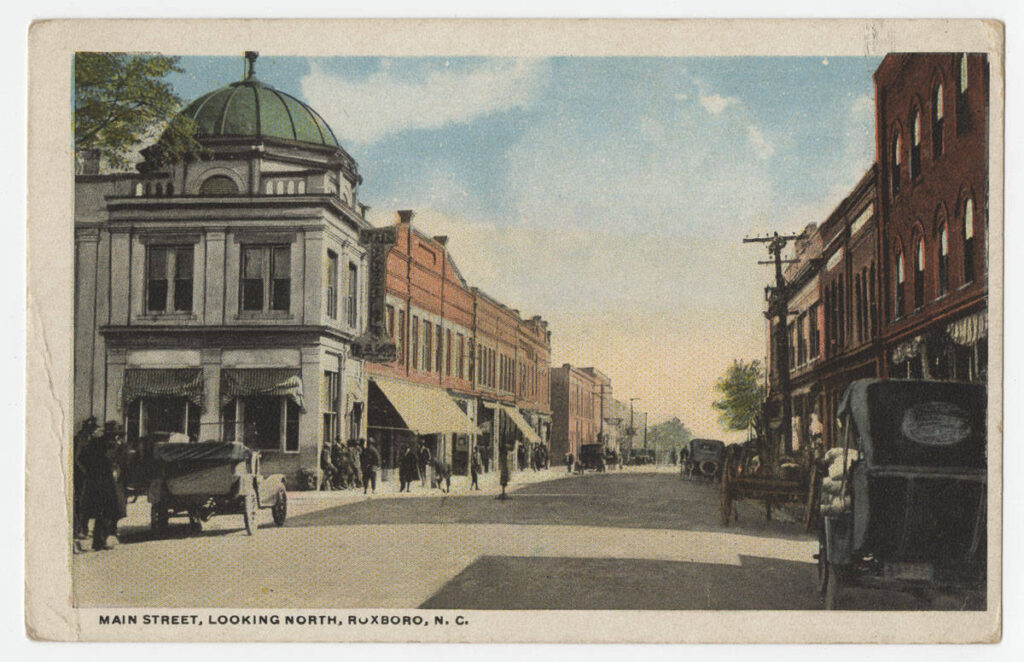by Margaret Bauer, Editor

My first end-of-semester read this year is pure happenstance. I don’t know what made me grab Dawn Shamp’s 2008 novel On Account of Conspicuous Women from the shelf where it was lying down among other books too tall for the height of the bookshelves. Was it the novel’s focus on women or, more likely, the desire to get rid of that stack of books that didn’t fit, one at a time.
At first, I wasn’t so sure about it—a bit silly and old-fashioned, I thought, but in a Eudora Welty’s “Why I Live at the P.O.” and Delta Wedding kind of way that eventually sucked me in. For a first summer read, I wanted something that I could get lost in rather than read a chapter a night. But when I started it, the semester’s grading wasn’t over, so I really should just allow myself a single chapter before reading final essays.
There are four women at the center of this story (which I’m not yet finished with): a suffragette trying to get the rural women of her community as interested in voting as she is; a newly widowed too young woman who’s come to town to teach as a distraction from her loss; the suffragette’s fashion-conscious socialite cousin quite happy with traditional women’s roles; and a young country woman who finds herself running the family farm alone, burdened by a dark family secret after her father’s death. A fifth woman, mother of the suffragette and a younger daughter, reminds us of the serious need for women’s rights as she admits, to herself at least, that she has been much more satisfied since being widowed than while married, once she knew the kind of man she married—and was stuck with until his death.
The one-armed mailman quietly wooing the farm woman may be adding a bit of Flannery O’Connor to the mix. Time will tell, but I doubt it—he seems genuinely devoted, and I’m rooting for him. I’m also starting to suspect that the socialite’s fiancé and the young widow will end up together, but, again, time will tell.
The novel is set in Roxboro, NC, in Person County. I’ll look forward to some time when I challenge students to name a town, and I’ll name a writer, and some student tries to stump me with this place that I had to look up. I do feel now that I’ve visited it, at least a 1920 version of it, like the one I found in the North Carolina Postcards Collection. Read Joyce Compton Brown’s review of this novel (and 2 others by women writers) in NCLR 2009.
